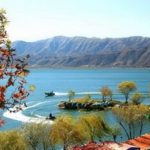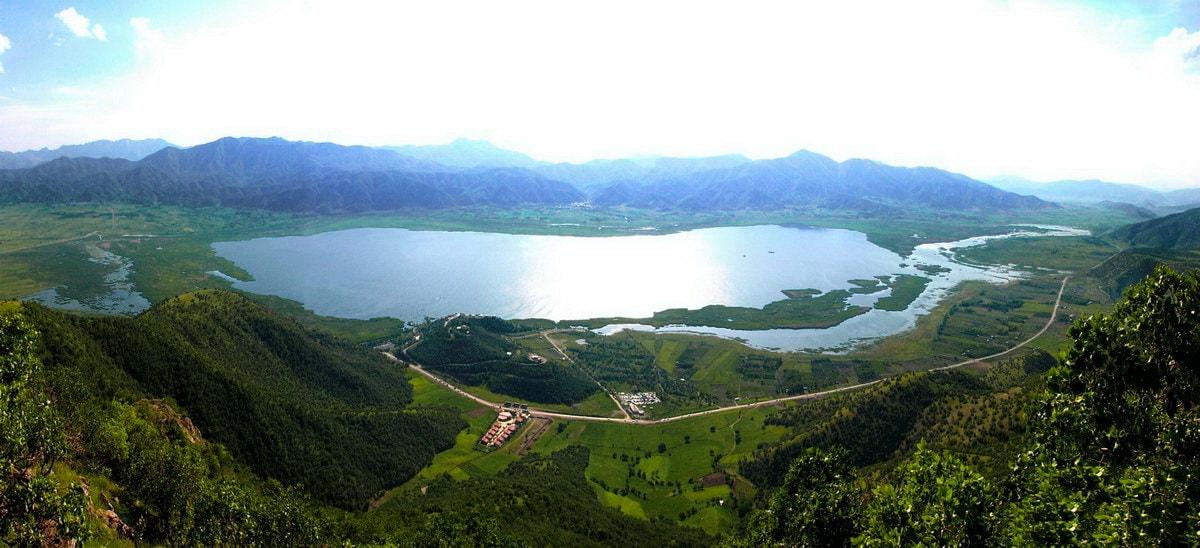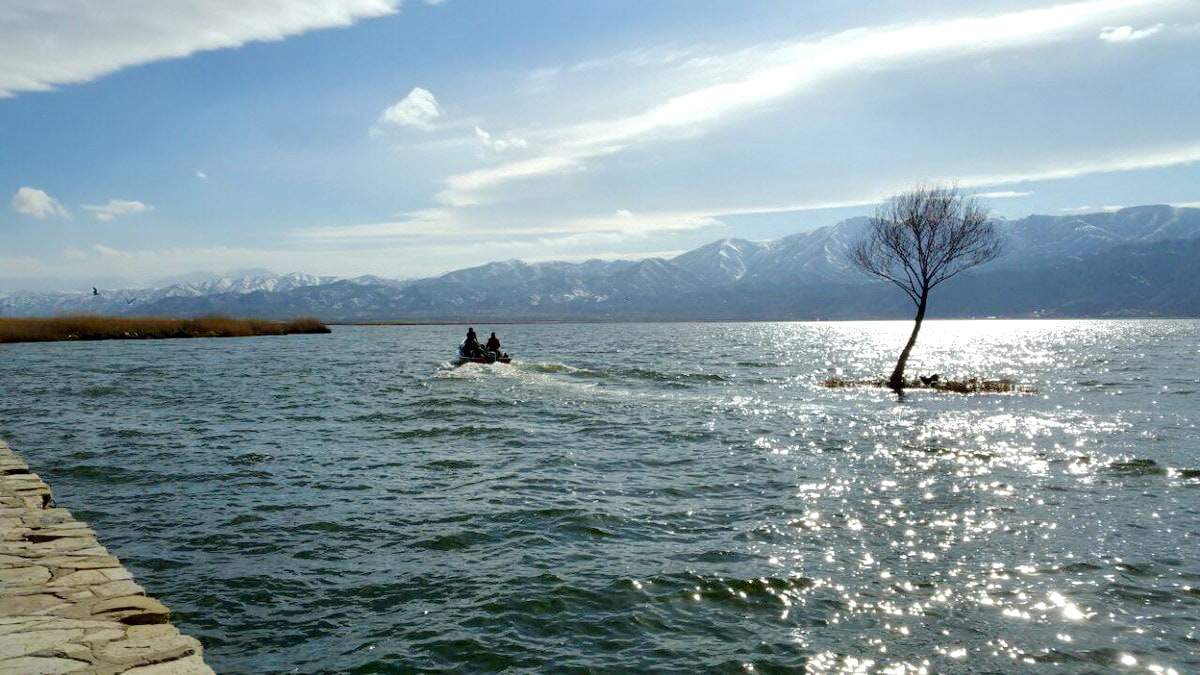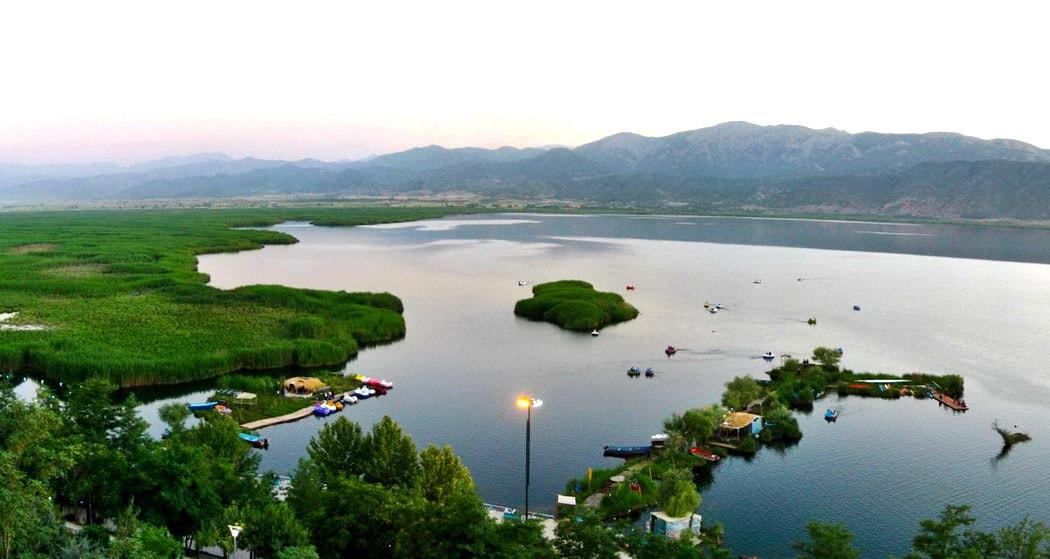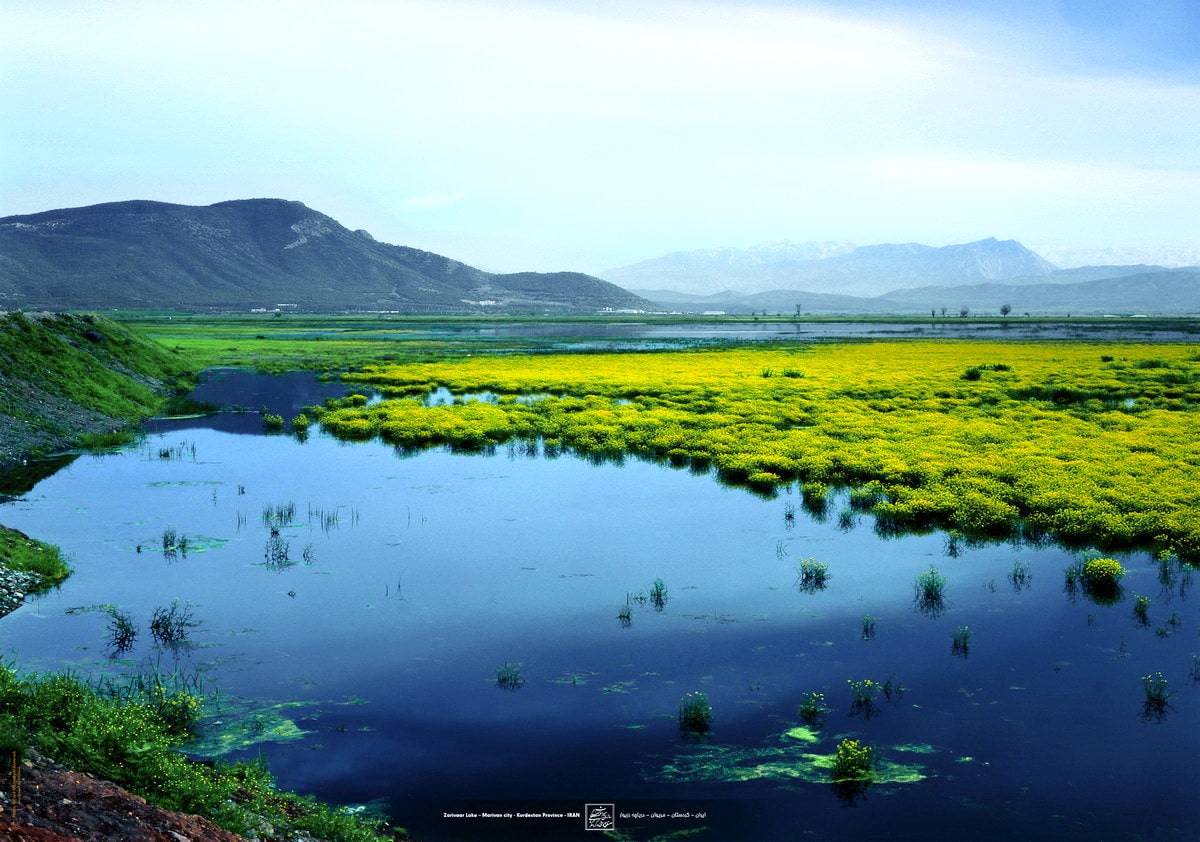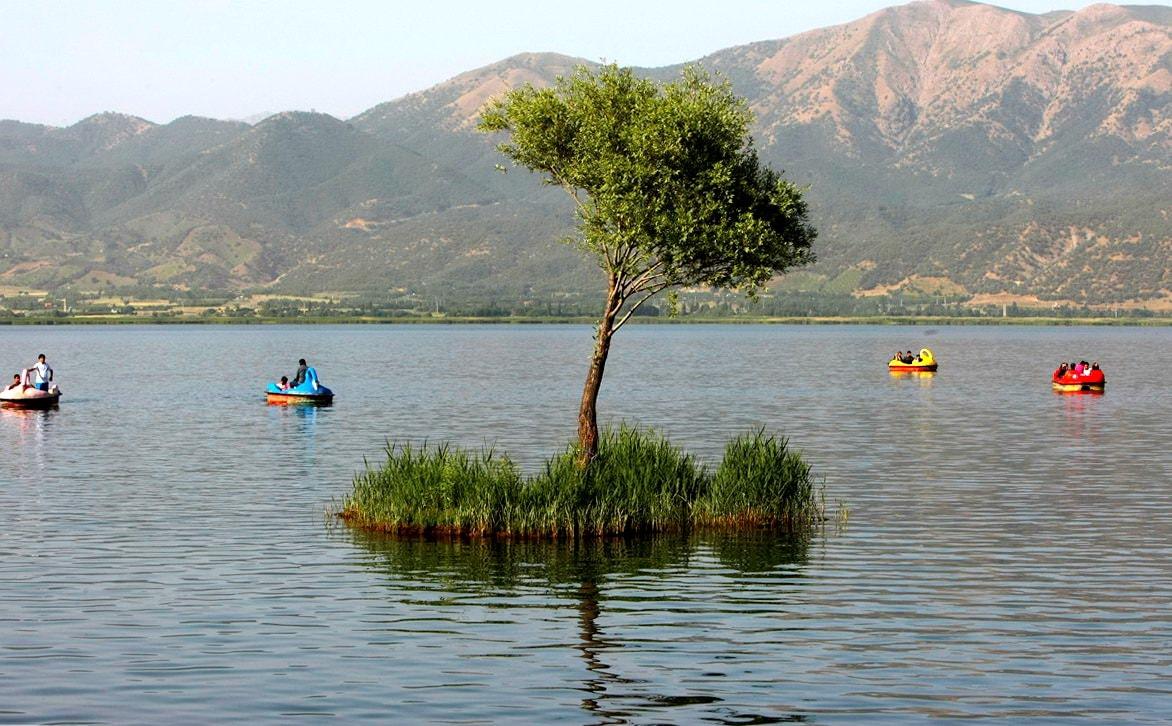Zarivar Lake
Lake Zarivar is located in the midst of beautiful thick oak forests and various types of trees near the city of Marivān (Kurdistān region). Research carried out on specimens found in this lake shows that the Zarivār swamp was created over 20 thousand years ago (Pleistocene Age) in cold weather conditions.
Lake Zarivār or Zaribār (in Kurdish: Zrȇwar, Zrȇbar), about 5 km long, almost 1,6 km wide and at least 5,5 meters deep, is located at a height of 1285 meters above sea level; its fresh water is obtained from the springs that flow from its bottom, (the largest source of fresh water in the world) and from the fall of rainwater, (no river flows in it) and is considered among the natural resources of the Kurdistān. The surface of the lake in most winters is completely frozen. It is covered with plants and here aquatic animals, birds and various mammals live together.
The name Zarivār is reminiscent of the Pahlavi language that was common in the area before Islam. Zarivār or Zaribār comes from the word "Zari" (lake, sea) and from the suffix "Vār" (next) and therefore has the meaning of "Accanto al lago" or "Accanto al mare".
According to locals Zarivār is a legendary lake full of secrets and stories; the best known is the presence of a city buried under the waters of this lake: one day a dervish on the back of a donkey together with his pregnant wife passes near this city, is arrested by the governor's agents and taken to the city. The inhabitants and the officials of the police torture and annoy him and the dervish, who can no longer stand these tortures, with an offended heart climbs a mountain on the east side of the city and curses them there and this happens: on the order of God from the underground springs water begins to gush out, the despotic governor and the whole city is buried underwater. Today the sepulcher of the dervish, a place of pilgrimage on the slopes of the mountain for the people of Marivān, is the spectator of the present lake.
Another legend about this place tells that the Zarivār lake actually preserves a great legendary treasure on its bottom that until today no one has been able to find. According to this story the meaning of the lake's name derives from "zar" (gold) which refers to this hidden treasure.
In addition to enjoying the beautiful nature of this lake, of various local and recreational customs such as: the original Kurdish dance, the colorful clothes, the cheerful and engaging local music, here you can experience recreational activities such as: rowing, fishing, the photography, birdwarching, paragliding etc ..

